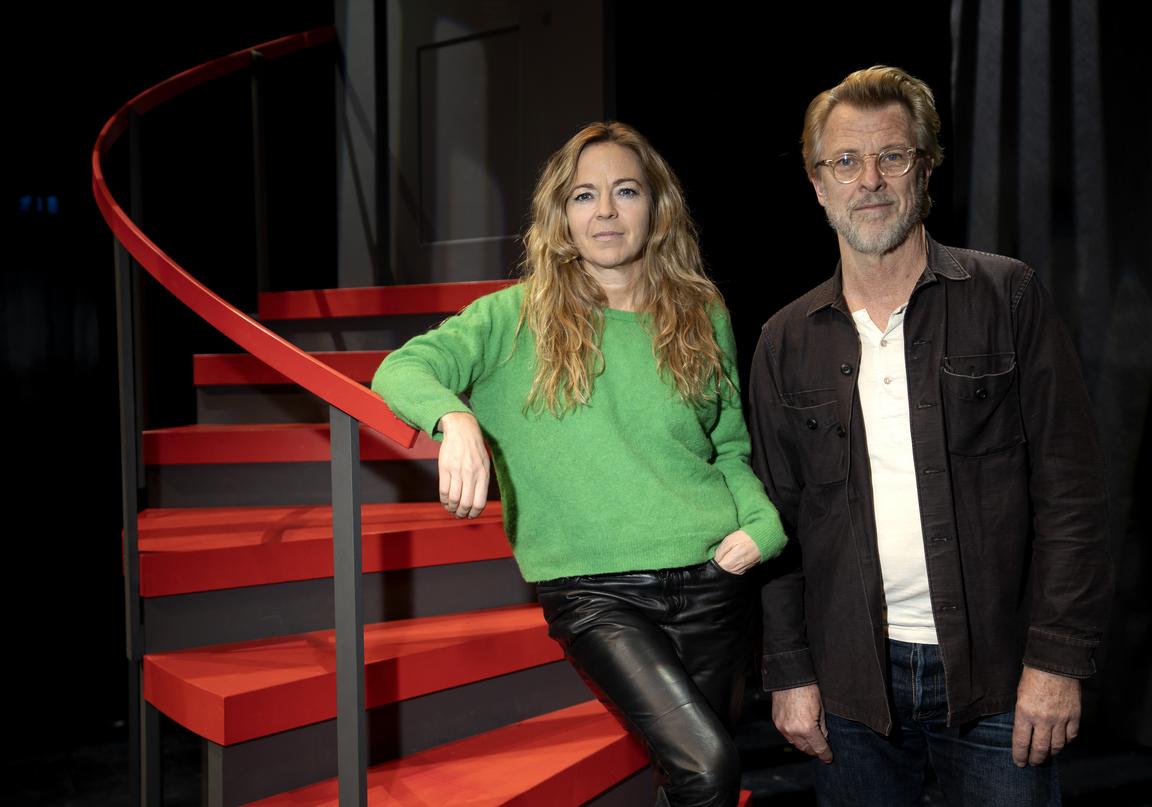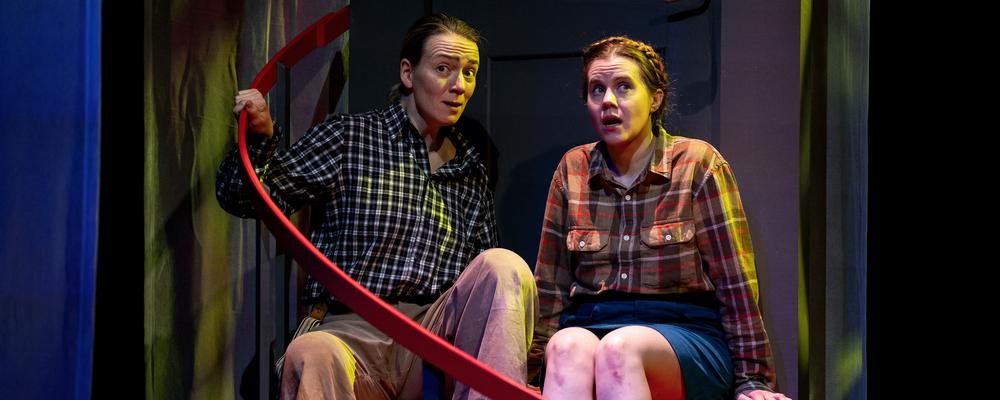
Final production opera: Hansel and Gretel
The final production of the 2022 Master's Programme in Opera was Hansel and Gretel (Hänsel und Gretel), an opera in two acts with music by Engelbert Humperdinck. This production was performed at the Academy of Music and Drama from 7-16 December 2022.
What if a whole life was contained in a single fairy tale?
A fairy tale that plays out over and over until it ends the way you want it to.
With each turn you get one step closer to what you think you want. But with each turn, what you want changes and leads you in new directions. To be thrown into the dark forest and lost, is the lot of every young man. But what you find out there, and how you deal with it, is the real adventure. The goal is not to find your way out of the forest, the goal is to find yourself, in the forest.
The performance is sung in German.
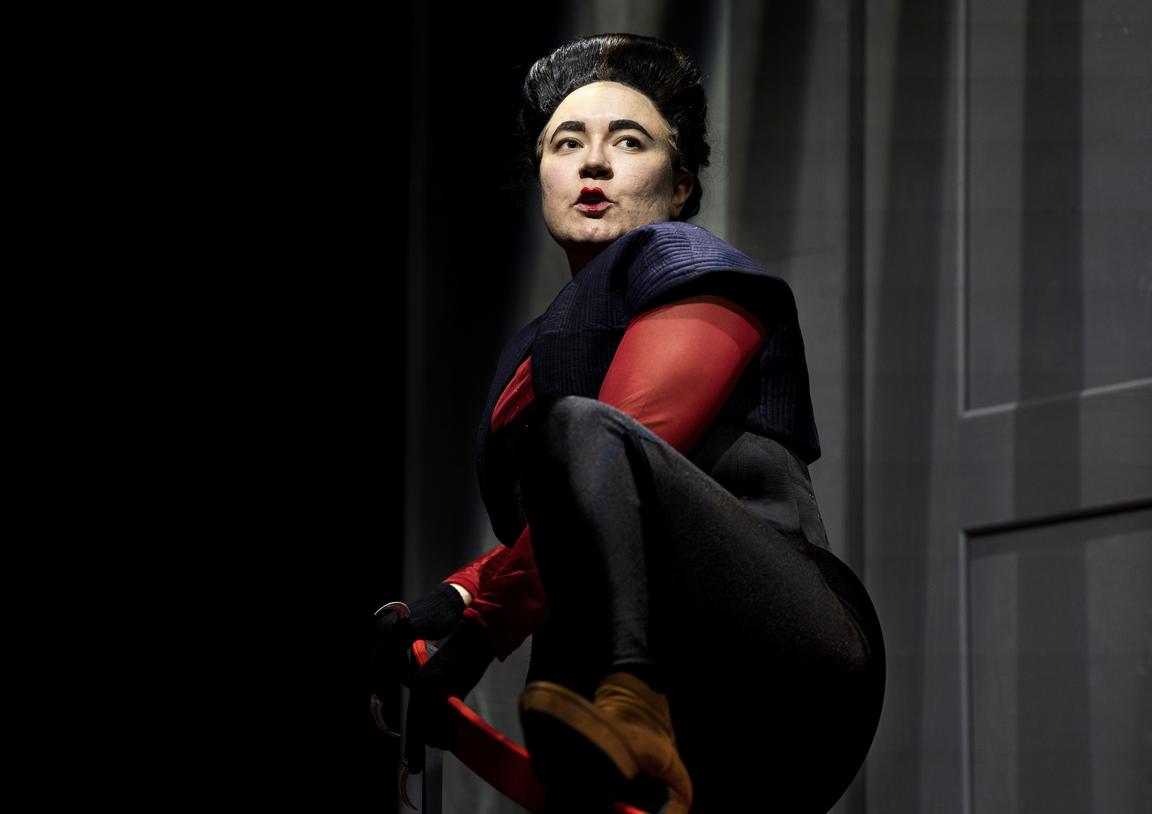





Hansel and Gretel
Music Engelbert Humperdinck
Libretto Adelheid Wette
Director Mira Bartov
Scenography/costume Leif Persson
Conductor Henrik Schaefer
Orchestra University of Gothenburg Symphony Orchestra
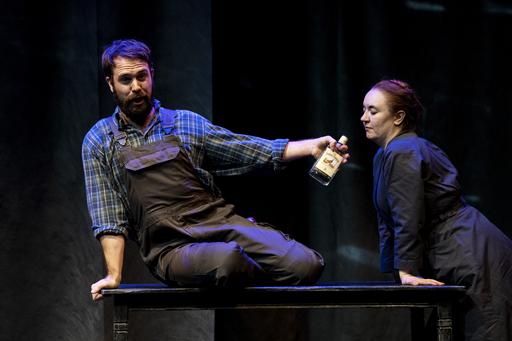
Synopsis (our version)
Hansel and Gretel are at home alone. They are cold and hungry. They try to keep fear and hunger away by fantasizing and playing. Mother comes home and is furious when she discovers that they have not done the work they should have and throws them out of the house after having broken a milk jar while chasing them. She falls asleep on the kitchen table and wakes up by father's drunken arrival. He has had a good day at work, sold lots of brooms and brings groceries for a feast. But when he finds out mother has thrown out the children and told them to go to Ilsenstein, he is horrified. That part of the forest is under the spell of dark magic and is inhabited by a witch. The parents leave in a hurry to find their children before it’s too late...
From the moment the children enter the forest, strange things start to happen. From here onwards no logical explanations can be made. All that is certain is that time seems to speed up. In fact, years pass by as Hansel and Gretel go from childhood to youth and young adulthood, before reaching the end of their adventure.
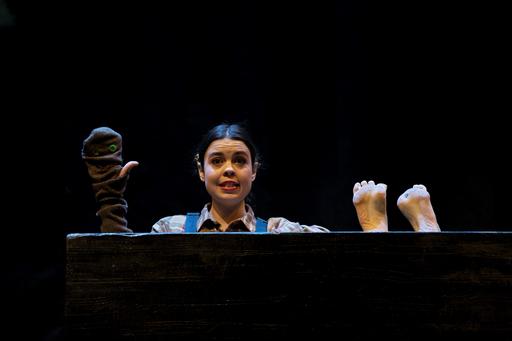
Cast
Hansel Anne Birgitte Bouwhuis Røkke
Gretel Amelie Flink/Stephania Parlantza
Mother/Witch Katariina Poikela
Father Marcus Bartoletti
Sand/Taumännchen Stephania Parlantza/Amelie Flink
Students from the bachelor's programme in Opera, year 1:
Annalouisa Magnusson
Linnea Nordström
Julia Nylander
Sally Sallingboe Jørgensen
Linnea Simon
Sandra Wettergren
University of Gothenburg Symphony Orchestra
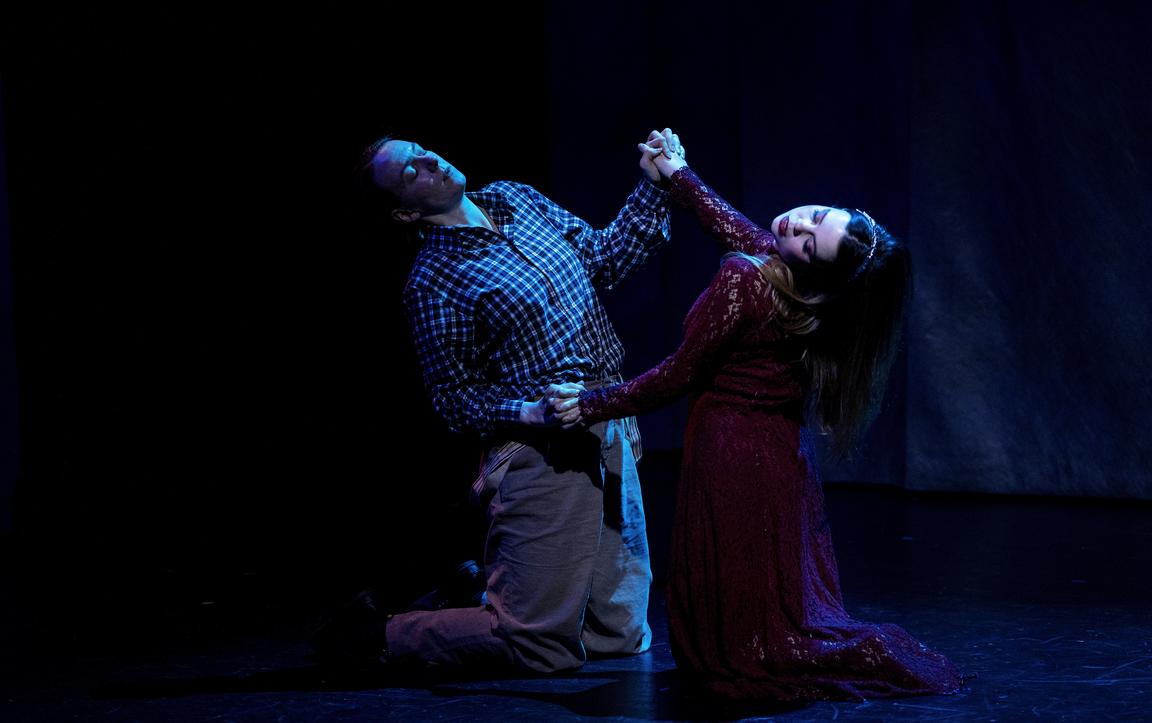
Backstage
Set and costume design Leif Persson
Lighting design and projections Peter Wikström
Mask and wig design Lars Carlsson
Set design Mikael Eriksson, Leif Persson, Peter Holmgren
Costume studio Ina Nyholm, Jenny Beckman, Amanda Siljebratt
Orchestra producer David Glänneskog/David Westerbrand
Rehearsal coach Maria Ingemarsson Berg
Producer Hanne Wirde
Communication Tobias Egle
Programme Supervisor Opera Education Monica Danielson
Head of the Performing Arts Unit Catharina Bergil
Head of Classical Music Unit Anders Köllerström

A few words from the director.
Growing up is the greatest adventure of our lives. ...but we don't know that until much later.
This is in fact what most fairytales are about. Getting lost in order to find ourselves. Which we do of course by fighting dragons and witches in order to win the prince, princess or first price. After having survived childhood, we find ourselves better or worse equipped with the characteristics that guide us in the fatal choices we make, that will eventually form our destinies. The ancient question of "How much are we determined by heritage or environment?" leaves out the most interesting factor. Namely: what is uniquely our own, the potential we are born with. Some call it “The Acorn Theory”.
The impressions we have as children, while still discovering what it means to be alive, are deeply rooted in us. They will become our encyclopedia of references and associations. The first rainy day, will forever represent rainy days.
We may not have the privilege to choose which part we play in our own lives at the outset, but it is never too late to remedy any wrong casting that may have been done along the way. Or as T. S. Eliot so eloquently said: "We shall not cease from exploration, and the end of all our exploring will be to arrive where we started and know the place for the first time."
